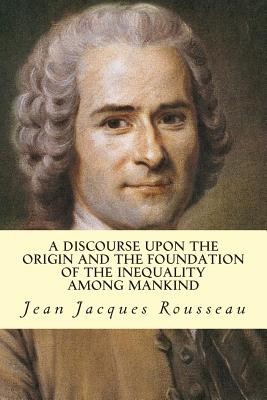
- We will send in 10–14 business days.
- Author: Jean Jacques Rousseau
- Publisher: CreateSpace Independent Publishing Platform
- Year: 2014
- Pages: 68
- ISBN-10: 1500710075
- ISBN-13: 9781500710071
- Format: 15.2 x 22.9 x 0.4 cm, minkšti viršeliai
- Language: English
- SAVE -10% with code: EXTRA
A Discourse Upon The Origin And The Foundation Of The Inequality Among Mankind (e-book) (used book) | bookbook.eu
Reviews
Description
Discourse on the Origin and Basis of Inequality Among Men is a philosophy classic by philosopher Jean-Jacques Rousseau Rousseau first exposes in this work his conception of a human state of nature, presented as a philosophical fiction (like by Hobbes, unlike by Locke), and of human perfectibility, an early idea of progress. Jean-Jacques Rousseau (28 June 1712 - 2 July 1778) was a Genevan philosopher, writer, and composer of the 18th century, mainly active in France. His political philosophy influenced the Enlightenment across Europe, as well as aspects of the French Revolution and the overall development of modern political and educational thought. Rousseau's novel Emile, or On Education is a treatise on the education of the whole person for citizenship. His sentimental novel Julie, or the New Heloise was of importance to the development of pre-romanticism and romanticism in fiction. Rousseau's autobiographical writings-his Confessions, which initiated the modern autobiography, and his Reveries of a Solitary Walker-exemplified the late 18th-century movement known as the Age of Sensibility, and featured an increased focus on subjectivity and introspection that later characterized modern writing. His Discourse on Inequality and The Social Contract are cornerstones in modern political and social thought. During the period of the French Revolution, Rousseau was the most popular of the philosophes among members of the Jacobin Club. He was interred as a national hero in the Panthéon in Paris, in 1794, 16 years after his death.
- Author: Jean Jacques Rousseau
- Publisher: CreateSpace Independent Publishing Platform
- Year: 2014
- Pages: 68
- ISBN-10: 1500710075
- ISBN-13: 9781500710071
- Format: 15.2 x 22.9 x 0.4 cm, minkšti viršeliai
- Language: English English
Discourse on the Origin and Basis of Inequality Among Men is a philosophy classic by philosopher Jean-Jacques Rousseau Rousseau first exposes in this work his conception of a human state of nature, presented as a philosophical fiction (like by Hobbes, unlike by Locke), and of human perfectibility, an early idea of progress. Jean-Jacques Rousseau (28 June 1712 - 2 July 1778) was a Genevan philosopher, writer, and composer of the 18th century, mainly active in France. His political philosophy influenced the Enlightenment across Europe, as well as aspects of the French Revolution and the overall development of modern political and educational thought. Rousseau's novel Emile, or On Education is a treatise on the education of the whole person for citizenship. His sentimental novel Julie, or the New Heloise was of importance to the development of pre-romanticism and romanticism in fiction. Rousseau's autobiographical writings-his Confessions, which initiated the modern autobiography, and his Reveries of a Solitary Walker-exemplified the late 18th-century movement known as the Age of Sensibility, and featured an increased focus on subjectivity and introspection that later characterized modern writing. His Discourse on Inequality and The Social Contract are cornerstones in modern political and social thought. During the period of the French Revolution, Rousseau was the most popular of the philosophes among members of the Jacobin Club. He was interred as a national hero in the Panthéon in Paris, in 1794, 16 years after his death.


Reviews